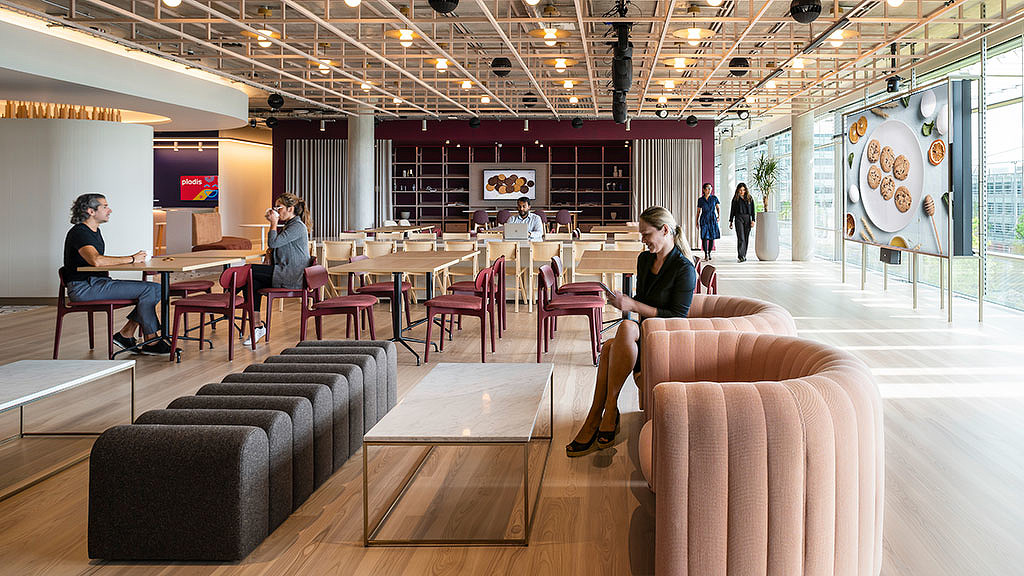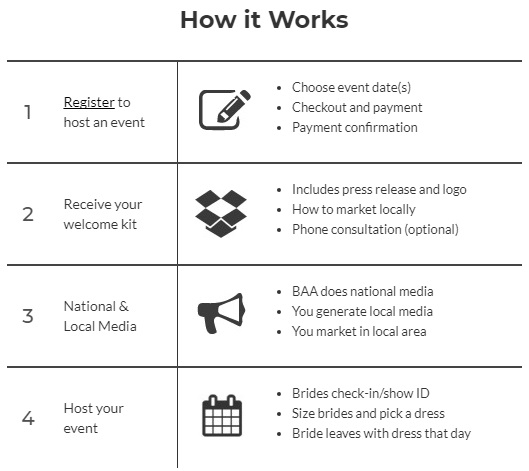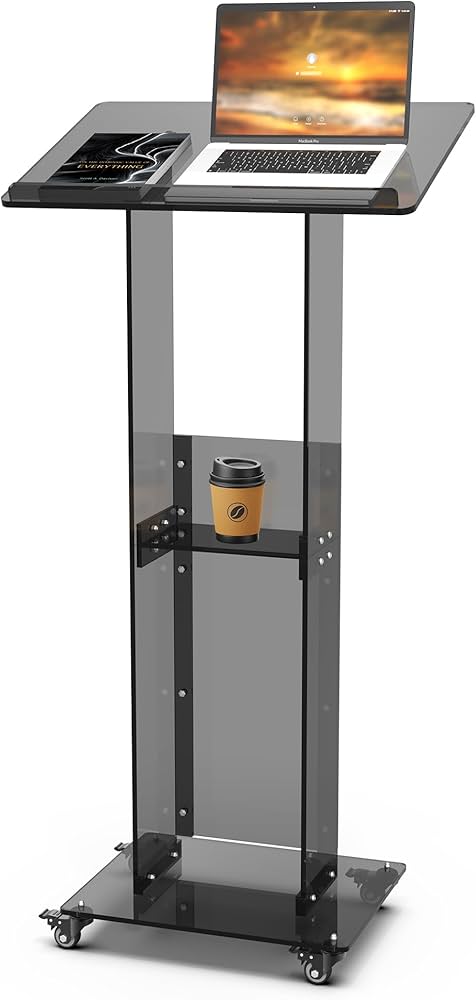Workplace Hospitality
Workplace hospitality refers to creating a warm and welcoming environment for employees and visitors, which can improve productivity and satisfaction. In today’s fast-paced and competitive business world, workplace hospitality plays a crucial role in attracting and retaining top talent.
Companies that prioritize this aspect not only enhance the overall employee experience but also promote a positive company culture. By providing amenities such as comfortable workspaces, well-stocked kitchens, and inviting common areas, organizations can make employees feel valued and empowered.
Additionally, investing in training programs to develop team members’ interpersonal skills can further enhance workplace hospitality. Understanding the importance of creating a hospitable work environment is essential for companies looking to cultivate a happy, engaged, and loyal workforce.
The Importance Of Workplace Hospitality
Creating a welcoming environment, enhancing employee satisfaction, and promoting productivity are key factors that contribute to the success of any organization. Workplace hospitality plays a crucial role in achieving these objectives. It goes beyond providing a pleasant physical space and encompasses meaningful interactions and inclusive practices that make employees feel valued and respected.
Creating A Welcoming Environment
A warm and inviting workplace can have a profound impact on employee morale and engagement. It sets the tone for a positive work culture and fosters a sense of belonging among the team members.
When employees are greeted with smiles and genuine greetings, it instantly uplifts their spirits and creates a friendly atmosphere. Likewise, a well-designed office space that is thoughtfully organized and aesthetically pleasing can create an environment that employees look forward to being in every day.
Enhancing Employee Satisfaction
Employee satisfaction is crucial for not only attracting top talent but also retaining them. Workplace hospitality plays a significant role in increasing employee satisfaction levels.
When employees feel valued and supported by their peers and superiors, it boosts their overall job satisfaction. Simple acts of kindness, such as celebrating achievements, offering assistance, and expressing gratitude, can make a tremendous difference in how employees perceive their workplace. Additionally, providing amenities like comfortable workstations, breakout areas, and well-stocked pantries contribute to overall employee satisfaction.
A satisfied employee is more likely to be motivated, productive, and dedicated to the organization. They are also more likely to become brand ambassadors, spreading positive word-of-mouth about the company’s culture and values.

Credit: education.ket.org
Key Elements Of Workplace Hospitality
Creating a welcoming and inclusive workplace environment is crucial for fostering a positive work culture. When employees feel valued, respected, and comfortable, they are more likely to be engaged, productive, and motivated. In this blog post, we will explore the key elements of workplace hospitality that contribute to a harmonious and supportive work atmosphere. These elements include effective communication, respectful and inclusive policies, and continuous feedback loops.
Effective Communication
Open and transparent communication is the cornerstone of workplace hospitality. It involves clearly conveying information, actively listening to others, and promoting a sense of trust among colleagues. When communication flows freely, employees can share ideas, voice concerns, and collaborate effectively. Regular team meetings, email updates, and project management tools facilitate efficient communication channels, keeping everyone informed and engaged.
Respectful And Inclusive Policies
Having respectful and inclusive policies in place ensures that employees feel valued, regardless of their gender, race, religion, or background. A workplace that promotes diversity and equality fosters a culture of acceptance and mutual respect. These policies should encompass fair hiring practices, equal opportunity initiatives, and anti-discrimination measures. Implementing training programs on unconscious bias and providing support for work-life balance demonstrate an organization’s commitment to creating an inclusive and welcoming environment.
Continuous Feedback Loops
Regular feedback is essential for nurturing a positive work environment. Implementing feedback loops enables employees to receive constructive criticism, recognize their strengths, and identify areas for improvement. Managers should provide timely feedback, recognizing employee achievements and addressing any concerns promptly. Encouraging a culture of feedback also empowers employees to share their perspectives, contributing to a collaborative and growth-oriented workplace atmosphere.
Benefits Of Workplace Hospitality
Creating a culture of hospitality in the workplace can have numerous benefits for both employees and the organization as a whole. From increased employee engagement to improved productivity, workplace hospitality can create a positive and welcoming environment that fosters collaboration and growth.
Increased Employee Engagement
When employees feel valued and appreciated, they are more likely to be engaged in their work. Workplace hospitality creates an environment of inclusivity and respect, making employees feel supported and motivated. This leads to improved morale and a higher level of commitment to the organization’s goals and values.
Engaged employees are more likely to go the extra mile, taking initiative and contributing innovative ideas. They are also more likely to stay with the company for longer, reducing turnover and the costs associated with hiring and training new employees.
Improved Productivity
By prioritizing workplace hospitality, organizations can significantly boost productivity levels. A positive work environment where employees feel comfortable and appreciated fosters a sense of belonging, leading to higher levels of motivation and focus. Employees are more likely to be proactive, take ownership of their tasks, and work collaboratively with their colleagues.
Workplace hospitality also leads to better communication and teamwork. When employees feel supported and respected, they are more likely to share ideas, seek feedback, and collaborate effectively. This helps to break down silos and promote a culture of knowledge sharing, which ultimately improves productivity and efficiency.
Furthermore, when employees are provided with comfortable and inviting workspaces, they are more likely to feel relaxed and energized, enabling them to perform at their best. A well-designed office with amenities such as breakout areas, comfortable furniture, and access to natural light can have a significant impact on employee well-being and productivity.
Overall, investing in workplace hospitality not only enhances the employee experience but also has a positive impact on the organization’s bottom line. By creating a culture of hospitality, companies can cultivate a highly engaged workforce, boost productivity, and create a thriving, collaborative work environment.
Implementing Workplace Hospitality Strategies
Improve workplace morale and productivity by implementing effective workplace hospitality strategies. Create a positive and welcoming environment that puts employees at ease and fosters collaboration and engagement. Boost employee satisfaction and retention with small gestures of appreciation and a focus on creating a supportive and inclusive workplace culture.
Creating a welcoming and inclusive environment in the workplace is essential for fostering a positive and productive atmosphere. By implementing workplace hospitality strategies, companies can enhance employee engagement, satisfaction, and overall well-being. In this section, we will explore two key strategies that organizations can focus on: Training and Development Programs and Flexibility and Work-Life Balance.
Training And Development Programs
Investing in training and development programs is a crucial step in promoting workplace hospitality. Such programs not only enable employees to upgrade their skills and knowledge but also demonstrate a company’s commitment to their growth and success. By providing opportunities for learning and advancement, organizations can cultivate a culture of continuous improvement and keep their workforce engaged and motivated.
Implementing training and development programs can involve various approaches, such as:
- Mentoring and coaching: Pairing experienced employees with new hires or those seeking to develop specific skills can provide valuable guidance and support.
- Internal workshops and seminars: Conducting regular workshops and seminars, led by knowledgeable professionals within the organization, can offer employees the chance to learn from experts in their respective fields.
- External training sessions: Arranging external training sessions or partnering with training institutions can provide employees with access to specialized knowledge and expertise.
- Online learning platforms: Providing access to online learning platforms allows employees to engage in continuous learning at their own pace and convenience.
By incorporating training and development initiatives into the workplace, organizations not only invest in their employees’ growth but also foster a culture of continuous learning and improvement.
Flexibility And Work-life Balance
In today’s fast-paced world, maintaining a healthy work-life balance is crucial for employee well-being and productivity. Recognizing the importance of this balance and offering flexible work options is a key aspect of workplace hospitality. By providing employees with the flexibility to manage their work schedules and personal commitments, organizations empower them to achieve a better balance between their professional and personal lives.
Here are some ways in which organizations can promote flexibility and work-life balance:
- Flexible work hours: Allowing employees to adjust their start and end times or implement alternative work schedules, such as compressed workweeks, can accommodate their individual needs.
- Remote work opportunities: Enabling employees to work remotely, either on a full-time or part-time basis, can provide them with the flexibility to work from their preferred location.
- Parental leave policies: Offering generous parental leave policies, including paternity leave, maternity leave, and adoption leave, supports employees in balancing their work and family responsibilities.
- Wellness programs: Implementing wellness initiatives, such as onsite fitness facilities, mental health resources, and mindfulness programs, helps employees prioritize their well-being.
By prioritizing flexibility and promoting work-life balance, organizations not only support their employees’ personal lives but also enhance their job satisfaction and overall productivity.
Incorporating training and development programs and embracing flexibility and work-life balance are just two examples of how organizations can implement workplace hospitality strategies. By prioritizing these aspects, companies can create a thriving, inclusive, and welcoming work environment, where employees feel valued, supported, and motivated to give their best.
Examples Of Successful Workplace Hospitality
Successful workplace hospitality is demonstrated through acts of kindness, respect, and inclusivity. It involves creating a welcoming environment, fostering positive relationships, and providing excellent customer service to both employees and guests. These examples promote productivity, employee satisfaction, and a strong company culture.
Tech Companies With Employee-oriented Cultures
In today’s competitive job market, prioritizing employee satisfaction and well-being has become a crucial aspect of workplace hospitality. Tech companies, in particular, have emerged as pioneers in creating employee-oriented cultures that go above and beyond to foster a positive and engaging work environment. Let’s take a look at a few notable examples:
1. Google: At the forefront of workplace hospitality, Google offers an array of perks to its employees, ranging from on-site gyms and healthcare facilities to complimentary gourmet meals. The company also encourages a healthy work-life balance by providing flexible working hours and paid parental leave.
2. Netflix: Known for its unique corporate culture, Netflix grants its employees unlimited vacation time, allowing them to take breaks when needed. Additionally, the company emphasizes freedom and responsibility, giving individuals the autonomy to make decisions within their roles.
Hospitality Industry
When it comes to providing exceptional workplace hospitality, it’s no surprise that the hospitality industry itself excels. With their focus on delivering outstanding customer experiences, these companies extend their dedication to their employees as well. Here are a few noteworthy examples:
1. Marriott International: As one of the largest hotel chains globally, Marriott International understands the importance of keeping its employees happy. The company offers comprehensive training programs, career development opportunities, and attractive employee discounts on accommodations and services.
2. Four Seasons: Renowned for its exceptional service, Four Seasons seamlessly translates its customer-centric approach into its workplace hospitality. Employees are provided with ongoing training, competitive benefits packages, and an inclusive work environment where diversity and personal growth are valued.
3. Ritz-Carlton: Known for its luxurious properties, the Ritz-Carlton goes above and beyond to ensure the well-being of its employees. By focusing on employee recognition and empowerment, the company creates a supportive and rewarding atmosphere, resulting in high employee satisfaction and long-term loyalty.
To sum up, whether in the fast-paced tech industry or the customer-centric hospitality sector, these examples demonstrate the significant impact of workplace hospitality on employee engagement and overall success. By prioritizing their employees’ needs, these companies have not only garnered stellar reputations but also set the standard for others to follow.

Credit: www.linkedin.com

Credit: www.caterer.com
Frequently Asked Questions For Workplace Hospitality
How Can Workplace Hospitality Improve Employee Productivity?
Workplace hospitality can improve employee productivity by creating a positive environment that fosters collaboration, satisfaction, and overall well-being.
What Are The Benefits Of Implementing Workplace Hospitality Programs?
Implementing workplace hospitality programs can lead to improved employee satisfaction, increased loyalty, decreased turnover, and enhanced company reputation.
How Can Workplace Hospitality Enhance Customer Satisfaction?
By providing excellent customer service, creating a welcoming atmosphere, and anticipating customer needs, workplace hospitality can greatly enhance customer satisfaction.
Conclusion
Creating a hospitable environment in the workplace is crucial for employee satisfaction and productivity. By fostering a culture of respect, inclusivity, and open communication, organizations can promote positive relationships and better collaboration among team members. Additionally, investing in employee well-being and providing opportunities for growth can lead to higher employee retention rates.
Ultimately, prioritizing workplace hospitality can have a significant impact on overall success and happiness within the organization.





